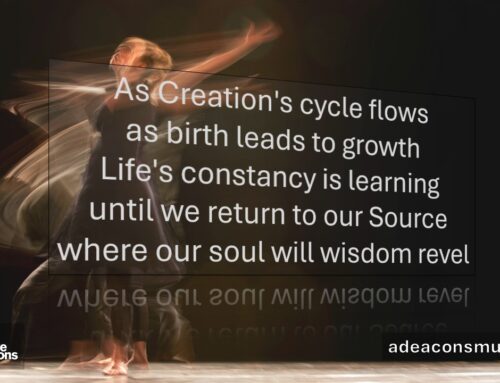I’m a questioner – I admit it. When I have the honour of sitting with someone in a space in which trust is extended, I find that it is the questions that are the mile markers, not the answers. I find that it is the right query that cuts through the fugue that too many answers create. It is the question, ultimately, that determines trajectory. Not surprisingly, then, the list above simply reflects a few that begin to determine my own direction as 2013 unfolds …
At the core of the questions is a realisation with which I am only beginning to explore. Those of us who fall into a rubric of ‘progressive,’ ‘liberal,’ and/or ‘post-modern’ Christians have had a tough go of it lately. What that means, what it has looked like and how it continues to be experienced is much too dense for a blog, but one example will suffice …
As a Christian with lots of questions I realise that we (whether my denomination or the larger ‘post-modern’ milieu) do a lot of deconstructing. We like to explore where we’ve been, how things may have gone awry and quite often we look to the Early Church: a moment in time that spanned approximately 300 years when Christianity was not compromised/seduced/lulled/apathetic owing to our proximity to power following the conversion of Constantine. We are good at dreaming, longing, perhaps even apologising for the place in which our understanding of the Christian call clearly stands in tension with what the world portrays a Christian should and does look like – and we do not want to be confused with that judgemental and intolerant lens.
Now do not get me wrong, I am not dismissing the appropriate challenges that arise from deconstruction and analysis. But … but, I’m not really sure that (on its own) it is faithful work. In fact, I’m not sure whether that’s an authentic manner to engage in sharing the Good News.
The Gospel we have inherited is grounded in the birth a wee babe. We get to choose to follow him. As he grows into adulthood, his life modelled a ministry that led to execution and resurrection, which ultimately shatters broken lives into wholeness. And those who claim to be his disciples, the inheritors of this truth, simply must construct the story for others. Intellectual apology and historical critique are – ultimately – first world problems: problems that do not meet the broken in our midst, problems that do not understand the nuance of translations from Aramaic, Greek or Hebrew, problems that are simply symptoms of a theological chauvinism that allows us to remove ourselves from a ministry we – nonetheless – long to offer to the world.
I’ve got a lot of question as 2013 unfolds. And – for me – what seems pressing right now is whether or not the ministry which I offer and in which I walk is really what Jesus the Christ modelled? Do the choices I make and those that unfold with the faith communities in my midst offer the Good News to a longing world or are we simply watering down the Gospel in order to lull ourselves back into complacent illusions that have – for some time now – offered easy answers? Whatever the answer may be to the question(s), I sincerely pray for you, for me and for those for whom the Good News is absent that intention and action become the plotline for the year that will be known as 2013.








Your reflections are most welcome!